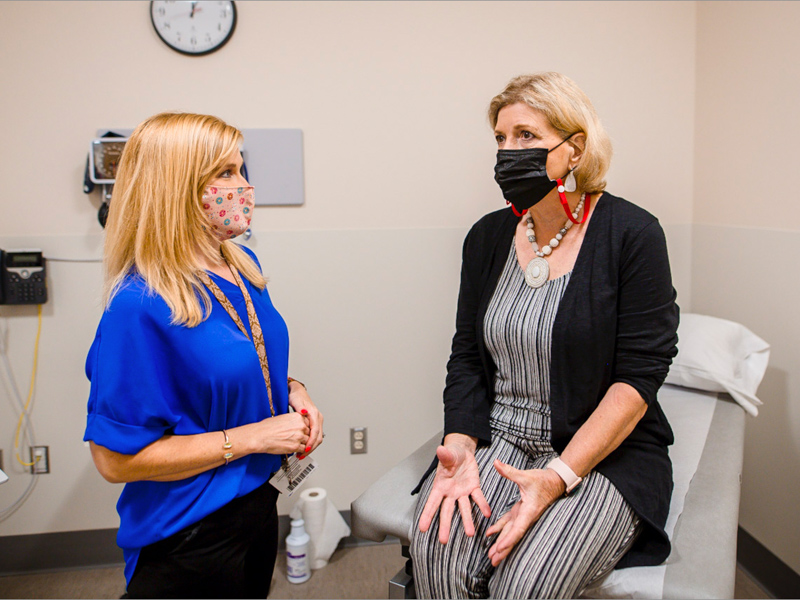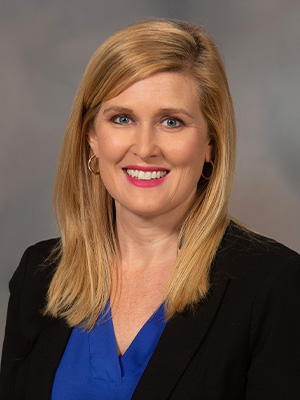Gynecological teaching associates key part of medical ed

Not all of what Liz Anderson teaches may be in the pages of a medical textbook, but her feedback to medical students will help thousands of women receive better health care.
A gynecological teaching associate, Anderson serves as the first woman a third-year medical student examines in training.

“They’re usually terrified,” Anderson said. “We teach them the best way to examine a patient, keep her informed on her health and treat her with respect, so when they see patients as physicians, they know what to do.”
The Judith Gore Gearhart Clinical Skills Center at the University of Mississippi Medical Center is setting up a gynecological teaching associate program in June to provide third-year medical students with the experience of examining a patient instead of a manikin.

“Traditionally, the third-year medical students learn how to perform pelvic and breast exams, pap smears and other procedures on simulation models,” said Dr. J. Martin Tucker, chair of the department and president of the American College of Obstetricians and Gynecologists. “This program will enhance the educational experience for our third-year students. Long-term, it will also improve women’s health care in Mississippi and beyond.”
The Medical Center is recruiting gynecological teaching associates to help train medical students and to give them feedback that will make them better doctors. No experience is necessary, but effective communication skills are one of the requirements.

"Gynecological teaching associates are the experts of their own bodies,” said Dr. Alaina Herrington, director of the Skills Center, which provides a setting for health care students to practice and be given feedback related to communication, information gathering and professionalism. “A GTA tells the medical student what they are thinking and feeling during the examination.”
Herrington said the GTAs help women have better health care experiences.
“For too many women, a gynecological exam is a dreaded experience,” she said. “We hope that the education our GTAs provide will directly impact the way future health care providers will be practice women’s health care.”
Anderson, who practiced as a nurse midwife with her late husband, a gynecologist, for 28 years, and has served as a GTA, agrees.
"Being a GTA is all about women’s health,” she said. “It’s a way to give back to UMMC and to the women of Mississippi. To me, it’s a calling.”
Some of the tips Anderson has provided medical students are things women would want their gynecologists to know.
“Sometimes it’s as simple as letting them know that when they knock on the exam room door, they should wait for the patient to tell them to enter the room,” she said. “That ensures that the patient is on the exam table, ready for the examination and comfortable with the doctor coming in. The patient should always feel safe and comfortable during an exam.”
The GTA is there also for the medical student to talk to during the examination. “Doctors should be providing information to patients throughout the exam,” Anderson said.
The examination with a GTA is not a test, Anderson said. “It’s a learning experience. A good GTA is a nurturer and a teacher.”


